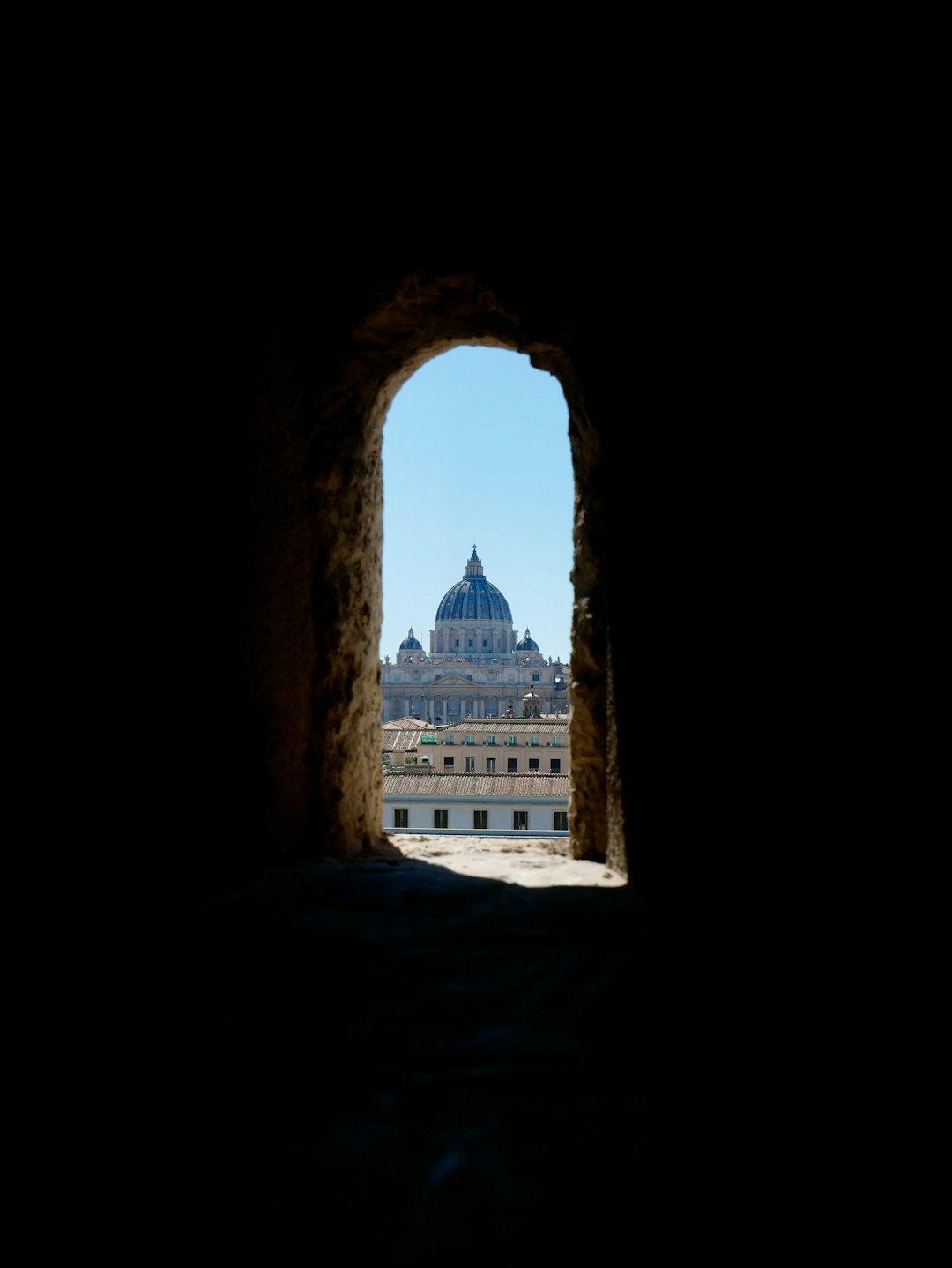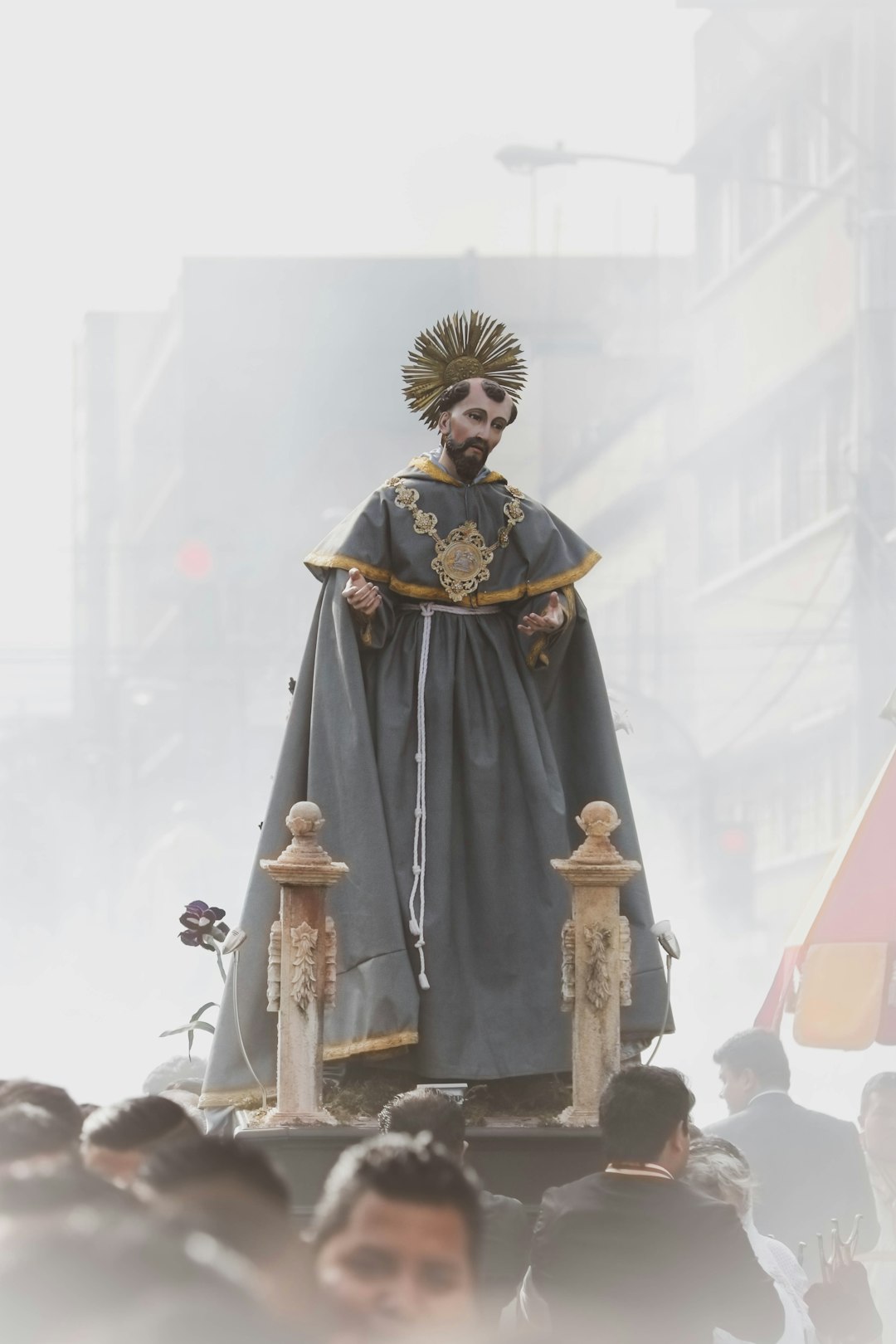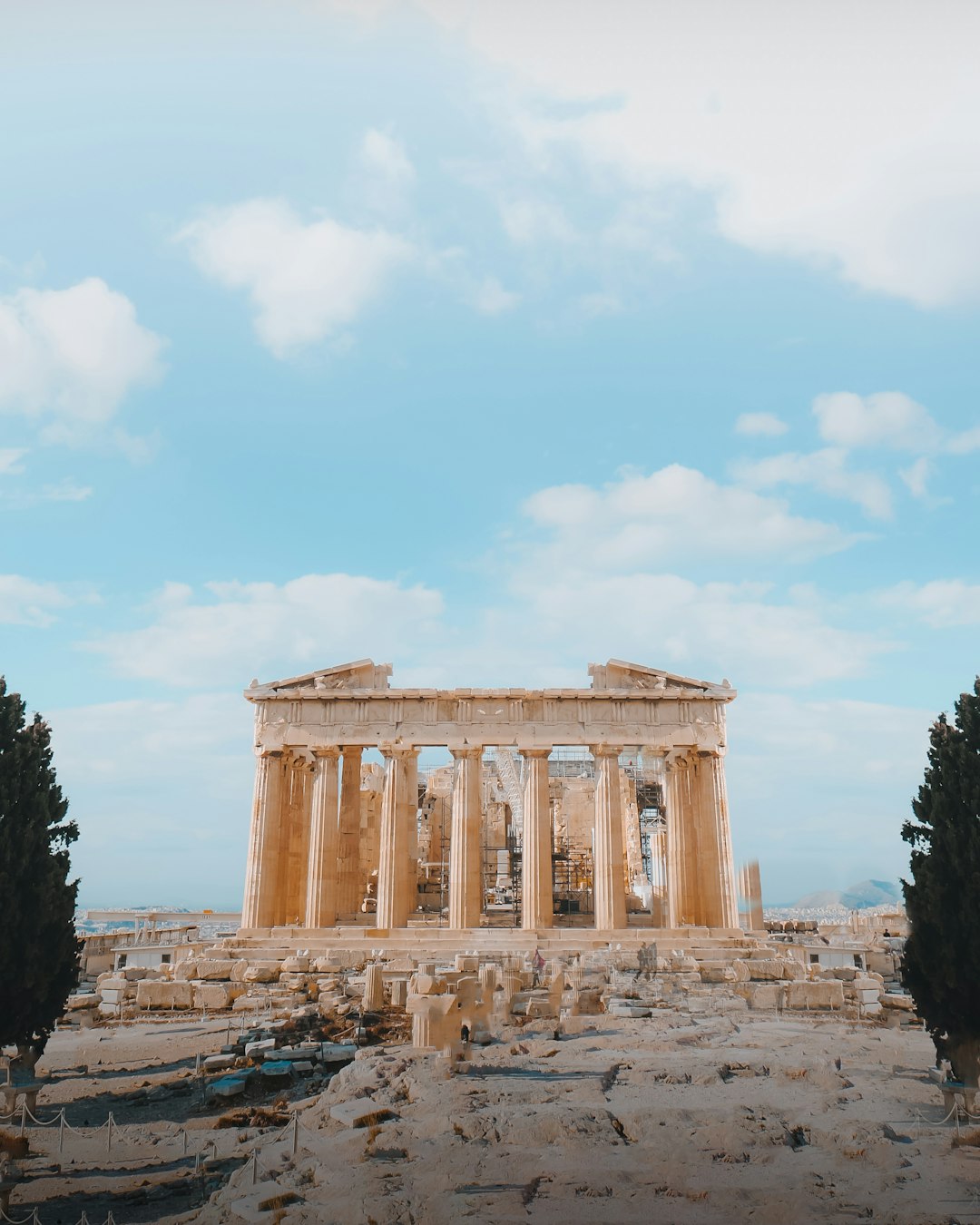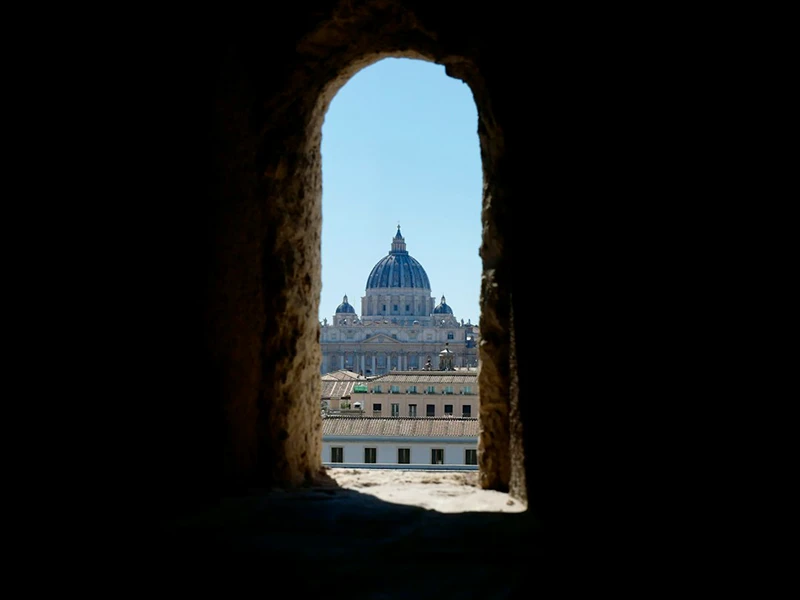The Tale of the Tragic Hero
Introduction
A cottage industry has sprung up around the issue of who the next pope should be; how he will be elected and the process for electing him. There has even been a movie made about the whole affair (Reviewed on our website for our subscribers). There are numerous articles explaining who the current cardinals are and who the papabile might be. Some articles are so bold as to suggest which one of the heretofore mentioned elect should actually get the job. This article is neither a repeat of that, nor is it a rebuke of that. Not at least, in any meaningful kind of way. Rather, I want the reader to consider a few ideas that might make for a better topic in his prayers and petitions when it comes to the papacy and the future of the Church. First, let me reassure our dear readers of a few things.
Nihil novum
The first, speculation about who should be the next pope is not something new or out of the ordinary. Although this does not mean it is not without its issues. Something habitual does not guarantee its goodness. Vices are habitual and they will lose your eternal salvation. I think conversations around the water cooler in the Apostolic Palace about the Pope’s health and who might replace him have been around in one form or another since quite literally the invention of the Roman aqueduct- or at least from the first time St Peter drank from one. Such opportunities allow for curial speculation and for old women to gossip- with much overlap between the two.
Decorum
Secondly, I understand that such a scenario does seem to lack a certain kind of decorum. I can remember all the discussions towards the end of Pope (St) John Paul’s life and the speculation as to who might replace him. It went on when I was in the seminary and it went on for a few years after I left the seminary. It was a kind of fixture of my first years in Rome.
View from Rome
Thirdly, the papacy is a different thing in Rome than it is in Sydney, New York or Kuala Lumpur. In the diaspora, the pope is a headline. In Rome, the Pope is just down the road. And it makes a huge difference. Since he is closer the pope looms larger. When the pope says something, or teaches something or wants something- there is an expectation that those who share similar post codes will take it seriously. And will be seen to take it seriously. So, when he is no longer, or may be no longer, it becomes an imperative in this context that he be replaced as quickly and as smoothly as possible. And this requires some kind of preparation. 265 popes may have come and gone- but when 266 passes, we want to know what to do and in what direction to go. We do not want to be caught off guard. People’s lives actually depend on there being a pope in office. It may seem like morbid speculation from a distance, and it can certainly be that; but for those who quite literally live in the shadow of St. Peter’s, day-to-day life depends on their being a pope and the peaceful transition between papacies. So, if an article entitled a conclave in the offing is not about the next conclave- what on earth is it about? Let me explain.
The Present
The Church’s long and storied history teaches that the church more often than not gets the pope she deserves, not always the pope she needs.[1] In some way, I think every pope is both a blessing and a penance for the Church. And a good deal of those two things overlap. It is usually the penitential aspect of a papacy that does more good for the Church than anything else. Although not all of that good is realised immediately. Hence, it may not be obvious how Divine Providence is guiding the Church in a moment of great difficulty or even crisis. Subsequent years, or even centuries, are sometimes required before God’s plan is revealed. But for those of us in the middle of the crisis- it just feels like a crisis.

In a coming conclave, hopefully within my lifetime, there will emerge onto St. Peter’s balcony a pope who will be more a man of old rather than a just a man of his time. By “man of old” I do not just mean a traditionalist. Even though he may be a traditionalist. Rather, what I mean by a man of old is that the Church will elect a pope who will be more like the tragic hero of Homer than the urbane man of letters like Cardinal Ratzinger.
The best measure of the Church’s present situation is not just the crisis we are in, but rather the fact that we cannot get out of it. The Church has faced many crises in Her past and will do so long after we are all dead and buried. However, the full measure of our present state is that we are not showing any signs of getting out of it. New programs to “renew”, “energise” and “empower,” the catholic faithful spring up like clover in the morning only to wither by noon. They are all without roots (Mk 4:6)- as the Gospel tells us. These programs, financed by the donations of Catholics, fail those generous Catholics because they are the fruit of a catholic culture that is tragically misguided.
They fail because they have no depth; and they have no depth because they are not drawn from the Church’s Tradition (Mk 4:20; 2 Thess 2:15). In the English-speaking West and in much of Western Europe, so many new programmes take inspiration from the “success” of Evangelical or even Pentecostal movements. Programmes like Alpha and Divine Renovation, although well intentioned, are essentially a protestantisation of the Catholic faith. Pentecostal praise and worship, Christian rock and a handful of Hail Marys are not part of Catholicism’s identity. The same applies to parishes who think the answer will come from the principles of sound leadership and good governance with a bit of eucharistic adoration on the side. They are all equally misguided. And this can be very hard to point out to those who are enamoured with these innovations. They are always quick to point out that since they started this new programme, they have seen an X% increase in mass attendance; and more people have signed up for the parish cleaning roster than ever before. But this is precisely the warning of the Gospel- these things spring up quickly, but they soon fade away. And in the context of Catholicism, even something that “springs up” for several years is still going to wither. The Lord was categorical in His instruction- do not go down that path (Mk 4:9).
Even more serious attempts at renewal have focused on restoring orthodoxy to our schools, seminaries, parishes, and chaplaincies. This is without doubt an essential step. If you do not have orthodoxy- then you have nothing at all. But when you have orthodoxy- you do not have everything that you need. There is still something missing, even when there is right doctrine.
Tradition: Intellect and Will
What is missing are not just a few good ideas or best practice solutions- what is missing is the Tradition of the Church. And the fullness of the Tradition of the Church means to have the mind of Christ (1 Cor 2:16): to know the truth as Christ knows it; and to love the good the way Christ loves it. The Tradition of the Church, when it is fully that Tradition, engages both the intellect and the will. The orthodoxy alone approach engages the intellect but it neglects the will. This will not renew our Church- it may interest the curious, it will not make them saints.
Tradition engages the intellect by teaching those truths that we are called to profess. Tradition engages the will by requiring us to act them out. This we do through acts of charity, works of mercy, the spiritual life, our vocation- and quintessentially at our participation at Holy Mass. The Mass is that privileged place where the truths of our catholic faith (the intellect) are acted out right in front of us (the will). That is why the mass must always be traditional- it cannot be a novelty and subject to the whims and tastes of the day.
Catholics no longer live a traditional catholic life. And by that I do not mean that we no longer go out to work in the fields in the morning and then come back in the afternoon to take our washing down to the river and beat it with a rock. We no longer live into the fullness of the truths we profess by acting them out in what we do. Catholicism is not a lifestyle- but it is a life. You can be a traditional catholic and live the life proper to a traditional catholic by being a wheat farmer or a derivates broker. We no longer live a traditional catholic life and so we no longer exercise the will in a way that received wisdom has instructed us to do so. We have eschewed penance, mortification, ember days. We no longer honour saints’ days with processions. We no longer engage in pilgrimages in order to sort out the chaos of our interior lives. We do not hold missions in parishes or support the missions in the world.

Now, I know what you are thinking. But please stop making a list of all those things that exist and that you do. There are the pilgrimages of Chartres, Walsingham and Christ the King. You can send money to the Missionaries of Charity and not eat meat on Fridays. Yes. You and I can do all of those things. But that is just you and I, and a handful of others too, doing things with our own initiative. It is not the Church as a whole- as the Body of Christ- pulling together and creating the expectation that this is precisely how we are to live a Catholic life and live into the truths that we hold dear. There are many different opportunities and possibilities depending on one’s state and means in life- but what is the point of unity between all these different options. What is the One thing that unites us together? What is the catholic expectation of how we are to live a Catholic life? For the real point of no meat on Friday or a procession on Corpus Christi is not the fish and chips or the chance for a bit of exercise. Rather it is to act out revealed truth, form a Catholic will, resist sin and grow in virtue. This is an action of Grace- an action that our Catholic Tradition hands on to us as received wisdom from God Almighty. When there are no cultural markers- where there is no unity- we are no longer effectively able to resist evil. And we are unable to resist evil- because we have not formed a Catholic will. We have not acted out the truths that the Church holds dear. So, when hospitals are threatened with mandatory abortion, or transgenderism is pushed upon our schools- we throw our arms up in the air and despair. But we are not able to raise a fist in resistance. If nothing unites us- then anything will eventually divide us.
The collapse of the catholic will- because we neglect the Tradition- means that we are unable to say no to both the evil and the ludicrous. And so, when any new idea is thrust upon us, especially those that are well intentioned- we are unable to resist. We are both unwilling and unable to even reprove our Catholic institutions when they blatantly stray from Catholic truth. Not only can we not resist the world- we cannot resist ourselves. One day, we will need a pope who will be a man not just of catholic intellect- but of catholic will. And this kind of pope will be more tragic hero than learned scholar. A teaching pope is a treasure- a wilful pope is a force of nature. And Grace.
The Future: The Tragic Hero
The figure of the tragic hero was invented by Homer. Or at least that is what the evidence suggests. Both the Iliad and the Odyssey are replete with this kind of man. Achilles, Ajax and Odysseus are some of the better known. However, it is Aristotle that actually tries to make sense of who this figure is. The great Greek tragedians- most notably Sophocles and Euripides- have immortalised the tragic hero on stage. In Poetics, Aristotle makes the point that the tragic hero must be a man who starts out well, but then who suffers some tragedy because of an error or lapse in judgement. The tragic hero is meant to remind us- that there go I, but for the favour of the gods. But Christianity has transformed the tragic hero. He “fails” not because of some real error of judgment on his part- rather because of the sinfulness of the world. When the Christian tragic hero falls, it is because he would not read the writing on the wall and compromise with the world. His lack of judgment is not a moral error, rather it is failed self-interest. The hero could have quite easily saved himself- but his judgement would not allow him to sacrifice his character for a place in the world. And so, he pays a tragic price- that could have been avoided- at the price of his soul (Mt 16:26).

However, this kind of tragic hero is usually rejected by the world (Is 53:3). At least for a time. If he rejects the world and all it offers- then the world will turn against him and reject him. Anyone destined to be a tragic hero, will never really be one of the in crowd. He will be a man who just doesn’t quite seem to fit in- he is after all, about to turn his back to the world, when keeping himself in good with the world would have saved his life. This kind of hero does not belong to the world. And as pope- he may not fit the mould we are used to. He may be a pope who does not issue many encyclicals or apostolic exhortations. His catechesis may not be the most interesting or his homilies the most riveting. Or they might be. He may not be a teacher or preacher in the classical sense. He will be a pope that you will have to watch. But when you watch him- you will see a catechesis in motion. He may not be a teacher to whom you listen; but you will not be able to take your eyes off him. He will be a man of Catholic intellect, but he will be man of outstanding Catholic will.
In order to be a man of old– to play the tragic hero- he will have to turn against the things the world holds most dear. He will undo many of the errors that we have allowed ourselves to be conned into and to which we are attached. He may not do it with a teaching document- he will do it with authority. He will not be liked immediately and it will be easy for the world and us to criticise him. The world will say he is rather dim-witted and not very charismatic. He will be “insensitive”, “tone deaf” and “out of touch”. From afar you won’t really be able to tell what he is doing. Yet, if you are paying attention, everything he does will be a catechism. He probably won’t be remembered for what he said. We will be too busy recounting the stories- the heroic tale- of what he did. The problem with a Christian tragic hero is that he does not feel very heroic at the start- it is only when he has taken his stand that you see what he has accomplished.
But like all men of great catholic will- it will not be easy. We always think that a good pope will put right the things that we think are wrong. He will undo Amoris Laetitia, Fiducia Supplicans and the Synod on Synodality. This he will do- he will have to do- but he may not do it with much of an intellectual take down. He will just revoke them and say: “no more of that nonsense.” He will tear up Traditones Custodes and probably the deal with China. But even though we see the necessity of those things- if he is going to clear up the mess in the Church, then he also has to clear up the other great mess as well- your sins and mine. We always tend to think that a good pope will do what we think is right. A good pope will do what is right- despite whatever we might think. A good pope will not give us a free pass. He will be denounce your stupidity and my vices, just as much, maybe even more so, than he will the folly of ecclesiastical climate change. That is what I mean when I say- every pope is both a blessing and a penance. And our blessing may just be the penance that he imposes on each of us.
[1] Everyone loves to pick on Pope Alexander VI, the famous Borgia Pope, famous for all of the wrong reasons. Although the details of his life are scandalous, I think there is a better example: Pope Benedict IX. The following is a summary taken from the Catholic Encyclopedia:
Pope Benedict IX (c. 1012 – c. 1056), born Theophylactus of Tusculum in Rome, was the bishop of Rome and ruler of the Papal States for three periods between October 1032 and July 1048. The nephew of his two immediate predecessors, Benedict IX was a man of very different character to either of them. He was a disgrace to the Chair of Peter. Regarding it as a sort of heirloom, his father Alberic placed him upon it when a mere youth, not, however, apparently of only twelve years of age (according to Raoul Glaber, Hist., IV, 5, n. 17. Cf. V, 5, n. 26), but of about twenty (October, 1032). Of his pontifical acts little is known, except that he held two or three synods in Rome and granted a number of privileges to various churches and monasteries. He insisted that Bretislav, Duke of Bohemia, should found a monastery, for having carried off the body of St. Adalbert from Poland. In 1037 he went north to meet the Emperor Conrad and excommunicated Heribert, Archbishop of Milan, who was at emnity with him (Ann. Hildesheimenses, 1038). Taking advantage of the dissolute life he was leading, one of the factions in the city drove him from it (1044) amid the greatest disorder, and elected an antipope (Sylvester III) in the person of John, Bishop of Sabina (1045 -Ann. Romani, init. Victor, Dialogi, III, init.). Benedict, however, succeeded in expelling Sylvester the same year; but, as some say, that he might marry, he resigned his office into the hands of the Archpriest John Gratian for a large sum. John was then elected pope and became Gregory VI (May, 1045). Repenting of his bargain, Benedict endeavoured to depose Gregory. This resulted in the intervention of King Henry III. Benedict, Sylvester, and Gregory were deposed at the Council of Sutri (1046) and a German bishop (Suidger) became Pope Clement II. After his speedy demise, Benedict again seized Rome (November, 1047), but was driven from it to make way for a second German pope, Damasus II (November, 1048). Of the end of Benedict it is impossible to speak with certainty. Some authors suppose him to have been still alive when St. Leo IX died, and never to have ceased endeavouring to seize the papacy. But it is more probable that the truth lies with the tradition of the Abbey of Grottaferrata, first set down by Abbot Luke, who died about 1085, and corroborated by sepulchral and other monuments within its walls. Writing of Bartholomew, its fourth abbot (1065), Luke tells of the youthful pontiff turning from his sin and coming to Bartholomew for a remedy for his disorders. On the saint’s advice, Benedict definitely resigned the pontificate and died in penitence at Grottaferrata. Mann, H. (1907). Pope Benedict IX. In The Catholic Encyclopedia. New York: Robert Appleton Company. http://www.newadvent.org/cathen/02429a.htm


